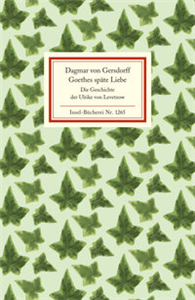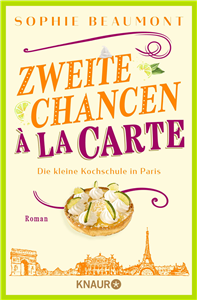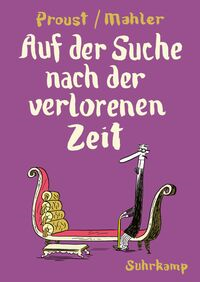Your Search Results
-
Promoted ContentThe ArtsFebruary 2019
Alain Robbe-Grillet
by John Phillips
Placing Robbe-Grillet's filmic oeuvre in the related contexts of both his novelistic work and the different historical and cultural periods in which his films were made, from the early 1960s to the present, the book traces lines of influence and continuity throughout his work, which is shown to exhibit a consistent preoccupation with an identifiable body of themes, motifs and structures. Close readings of all the films are skilfully combined with a thematic approach, ranging across the entire filmic corpus. The book also contains chapters on cinematography and technique. Ultimately, this lucid, comprehensive and fascinating study shows Robbe-Grillet's contribution to the evolution of the cinematic art both in France and internationally to have been considerably more important than previously acknowledged.
-
Promoted ContentThe ArtsOctober 2009
Alain Resnais
by Emma Wilson, Diana Holmes, Robert Ingram
Alain Resnais, director of 'Hiroshima mon amour' (1959) and 'L'Annee derniere a Marienbad' (1961), has transformed the representation of memory, fantasy and desire in modern cinema. This illuminating introduction to his work, extending from his earliest documentaries to the musical films of the last decade, traces the evolving patterns of his filmmaking, its changing reflections on mortality, guilt, chance and human doubt. Exploring questions of the time-image, of trauma, of the senses, this volume sets Resnais' films in the context of important current debates in film theory, and provides a concise account of critical discussions of his work in France and beyond. Yet it also offers a highly personal and detailed engagement with individual images and scenes in Resnais' films. A passionate and partial defence of Resnais' work, old and new, this volume stands apart in its attention to the more tangible and moving pleasures of his films, their pathos, rigour and visual beauty. ;
-
 Trusted Partner
The ArtsJanuary 2019
Trusted Partner
The ArtsJanuary 2019Alain Resnais
by Emma Wilson
Alain Resnais, director of 'Hiroshima mon amour' (1959) and 'L'Annee derniere a Marienbad' (1961), has transformed the representation of memory, fantasy and desire in modern cinema. This illuminating introduction to his work, extending from his earliest documentaries to the musical films of the last decade, traces the evolving patterns of his filmmaking, its changing reflections on mortality, guilt, chance and human doubt. Exploring questions of the time-image, of trauma, of the senses, this volume sets Resnais' films in the context of important current debates in film theory, and provides a concise account of critical discussions of his work in France and beyond. Yet it also offers a highly personal and detailed engagement with individual images and scenes in Resnais' films. A passionate and partial defence of Resnais' work, old and new, this volume stands apart in its attention to the more tangible and moving pleasures of his films, their pathos, rigour and visual beauty.
-
 Trusted Partner
Trusted Partner
-
 Trusted Partner
1983
Trusted Partner
1983Elegie von Marienbad. September 1823
Faksimile einer Urhandschrift
by Johann W von Goethe, Arthur Henkel, Christoph Michel, Jürgen Behrens
Lim., num.
-
 Trusted Partner
August 2005
Trusted Partner
August 2005Goethes späte Liebe
Die Geschichte der Ulrike von Levetzow
by Dagmar Gersdorff
Dreimal ist Goethe in Marienbad gewesen. Im Juli 1821 lernte der zweiundsiebzigjährige Dichter die siebzehnjährige Ulrike von Levetzow dort im Haus ihrer Großeltern kennen, traf sie im Jahr darauf wieder und kam zum dritten Mal im Sommer 1823 bereits als ein altvertrauter Freund und ließ dem jungen Mädchen durch Herzog Carl August einen Heiratsantrag übermitteln. Ob sie ihn heiraten wolle, hat Amalie von Levetzow ihre Tochter gefragt. Sie habe Goethe »sehr lieb«, sagte sie, und wenn er allein lebte, würde sie ihn nehmen. Darin lagen weder Abneigung noch Erschrecken oder Furcht vor seinem Alter, sondern einzig Rücksicht auf seine familiäre Situation: Wie sie wußte, wohnten mit ihm im Haus der Sohn, die Schwiegertochter und zwei Enkel, die sie keinesfalls »verdrängen« wollte. Dagmar von Gersdorff erzählt die Geschichte dieser späten Liebe und die weitere Lebensgeschichte der Frau, die im Alter von fünfundneunzig Jahren starb. Zeit ihres Lebens blieb sie unverheiratet und immer mädchenhaft zurückhaltend, unerreichbar oder wie Goethe in der Elegie, dem großen Abschiedsgedicht, von ihr sagte: »unüberwindlich«.
-
 Trusted Partner
Trusted Partner
-
 Trusted Partner
August 1987
Trusted Partner
August 1987Erzählungen und Tagebuchblätter
Ausgewählt und mit einem Nachwort versehen von Hermann Hesse
by Friedrich Hebbel, Hermann Hesse
1813 18. März: Christian Friedrich Hebbel wird als Sohn des Tagelöhners und Maurers Claus Friedrich Hebbel und seiner Frau Antje Margaretha, geb. Schubart, in Wesselburen geboren. 1817 Besuch der Grundschule der Jungfer Susanna. 1819 Besuch der Volksschule. 1827 Tod des Vaters. Hebbel arbeitet beim Kirchspielvogt Mohr zuerst als Laufbursche, dann als Schreiber. 1835 Reise nach Hamburg, wo er von der Schriftstellerin Amalie Schoppe unterstützt wird und seine Freundin, Gönnerin und spätere Geliebte Elise Lensing kennenlernt. 1836 Jurastudium in Heidelberg, das er aber bald wieder abbricht. Freundschaft mit Emil Rousseau. Wanderung über Straßburg und Tübingen, wo er Uhland besucht, nach München. Dort wohnt er beim Tischlermeister Anton Schwarz. Erste Gedichte und Erzählungen entstehen. 1838 Tod der Mutter und Emil Rousseaus. 1839 Wanderung über Göttingen nach Hamburg. Dort Arbeit an der Tragödie Judith. Mitarbeit an dem von Karl Gutzkow herausgegebenen ›Telegraph für Deutschland‹. 1840 6. Juli: Uraufführung von Judith in Berlin. November: Geburt des Sohnes Max. 1842 Ein Sammelband mit Hebbels Gedichten erscheint. November: Erste Reise nach Kopenhagen. Dezember: Erste Audienz beim dänischen König Christian VIII. 1843 Die Tragödie Genoveva erscheint. Von König Christian VIII. erhält Hebbel ein zweijähriges Reisestipendium, das ihn bis 1845 nach Paris, Rom, Neapel und Wien führt, wo er sich dauerhaft niederläßt. März: Arbeitsbeginn an der Tragödie Maria Magdalene, die er im Dezember abschließt. Oktober: Sohn Max stirbt. 1844 Mai: Geburt des Sohnes Ernst. Maria Magdalene erscheint. Promotion in Erlangen. 1846 13. März: Uraufführung von Maria Magdalene in Königsberg. Bruch mit Elise Lensing und Heirat mit der Schauspielerin Christine Enghaus. 1847 Gastspielreisen nach Berlin, Graz, Leipzig und Dresden. Neue Gedichte erscheinen. Dezember: Geburt der Tochter Titi. 1848 Hebbel arbeitet als Korrespondent für die ›Augsburger Allgemeine Zeitung‹. Kandidatur für die Frankfurter Nationalversammlung. 1849 Die Novelle Die Kuh erscheint. 19. April: Uraufführung der Tragödie Herodes und Mariamne in Wien mit Hebbels Frau in der Hauptrolle. 13. Mai: Uraufführung von Genoveva in Prag. 21. November: Uraufführung des Märchenspiels Der Rubin in Wien. 1852 Reise nach München anläßlich der Uraufführung der Tragödie Agnes Bernauer. Reise nach Italien. 1853 Reise nach Hamburg und Helgoland. 1854 Juli-August: Kur in Marienbad. 1856 Die Tragödie Gyges und sein Ring erscheint. 1857 Besuch bei Arthur Schopenhauer und Eduard Mörike. 1858 Juni-Juli: Reise nach Weimar. Bekanntschaft mit Fürstin Carolyne von Sayn-Wittgenstein. 1860 Reise nach Paris. 1861 31. Januar und 18. Mai: Uraufführung der Tragödien-Trilogie Die Nibelungen in Weimar. Plan, nach Weimar überzusiedeln. 1862 Reise nach London. Hebbel gibt den Plan, nach Weimar umzuziehen, auf. 1863 März: Hebbel erkrankt. September: Kur in Baden bei Wien. 13. Dezember: Hebbel stirbt in Wien. 1864 Das unvollendete Trauerspiel Demetrius erscheint. Hermann Hesse, geboren am 2.7.1877 in Calw/Württemberg als Sohn eines baltendeutschen Missionars und der Tochter eines württembergischen Indologen, starb am 9.8.1962 in Montagnola bei Lugano. Er wurde 1946 mit dem Nobelpreis für Literatur, 1955 mit dem Friedenspreis des Deutschen Buchhandels ausgezeichnet. Nach einer Buchhändlerlehre war er seit 1904 freier Schriftsteller, zunächst in Gaienhofen am Bodensee, später im Tessin. Er ist einer der bekanntesten deutschen Autoren des 20. Jahrhunderts.
-
 Trusted Partner
October 2014
Trusted Partner
October 2014D'Alexandre à Zoilos
Dictionnaire prosopographique des porteurs de nom grec dans les sources cunéiformes
by Monerie, Julien
-
 Trusted Partner
Trusted Partner
-
 Trusted Partner
Trusted Partner
-
 Trusted Partner
Trusted Partner
-
 Trusted Partner
Trusted Partner
-
 Trusted Partner
January 1990
Trusted Partner
January 1990L'épistolarité à travers les siècles
Geste de Communication et/ou d’écriture
by Bossis, Mireille / Überarbeitet von Porter, Charles A.
-
 Trusted Partner
May 2025
Trusted Partner
May 2025Zweite Chancen à la carte
Die kleine Kochschule in Paris. Roman
by Beaumont, Sophie
Aus dem australischen Englisch von Kristina Lake-Zapp
-
 Trusted Partner
1988
Trusted Partner
1988Questions Grammaticales de A à Z
Tout ce que vous avez toujours voulu savoir sur la grammaire sans jamais oser le demander. (Sprachbücher)
by Haddedou, Ahmed
-
 Trusted Partner
The ArtsJanuary 2019
Trusted Partner
The ArtsJanuary 2019Algerian national cinema
by Guy Austin
This topical and innovative study is the first book on Algerian cinema to be published in English since the 1970s. At a time when North African and Islamic cultures are of increasing political significance, Algerian National Cinema presents a dynamic, detailed and up to date analysis of how film has represented this often misunderstood nation. Algerian National Cinema explores key films from The Battle of Algiers (1966) to Mascarades (2007). Introductions to Algerian history and to the national film industry are followed by chapters on the essential genres and themes of filmmaking in Algeria, including films of anti-colonial struggle, representations of gender, Berber cinema, and filming the 'black decade' of the 1990s. This thoughtful and timely book will appeal to all interested in world cinemas, in North African and Islamic cultures, and in the role of cinema as a vehicle for the expression of contested identities. By the author of the critically-acclaimed Contemporary French Cinema.
-
 Trusted Partner
The ArtsJune 2021
Trusted Partner
The ArtsJune 2021Algerian national cinema
by Guy Austin
This topical and innovative study is the first book on Algerian cinema to be published in English since the 1970s. At a time when North African and Islamic cultures are of increasing political significance, Algerian National Cinema presents a dynamic, detailed and up to date analysis of how film has represented this often misunderstood nation. Algerian National Cinema explores key films from The Battle of Algiers (1966) to Mascarades (2007). Introductions to Algerian history and to the national film industry are followed by chapters on the essential genres and themes of filmmaking in Algeria, including films of anti-colonial struggle, representations of gender, Berber cinema, and filming the 'black decade' of the 1990s. This thoughtful and timely book will appeal to all interested in world cinemas, in North African and Islamic cultures, and in the role of cinema as a vehicle for the expression of contested identities. By the author of the critically-acclaimed Contemporary French Cinema.
-
 Trusted Partner
Trusted Partner
-
 Trusted Partner
September 2017
Trusted Partner
September 2017Auf der Suche nach der verlorenen Zeit
Nach Marcel Proust. Graphic Novel
by Nicolas Mahler, Marcel Proust
Marcel Prousts Recherche ist der bedeutendste französische, wenn nicht der bedeutendste Roman überhaupt – ein Werk, dessen Lektüre lebensverändernd sein kann. Nicolas Mahlers Comic ist keine Nacherzählung, keine Kurzversion von Prousts monumentalem OEuvre, sondern eine überraschend komische Bilderzählung, respektlos und zugleich doch voll und ganz durchzogen vom Proust’schen Geist. So wird diese »Suche nach der verlorenen Zeit« zu einem verdichteten Bilderstrom quer durch Raum und Zeit, zu einem brillant verschachtelten Spiegelkabinett der Proust’schen Motive und Wahrnehmungen.


























